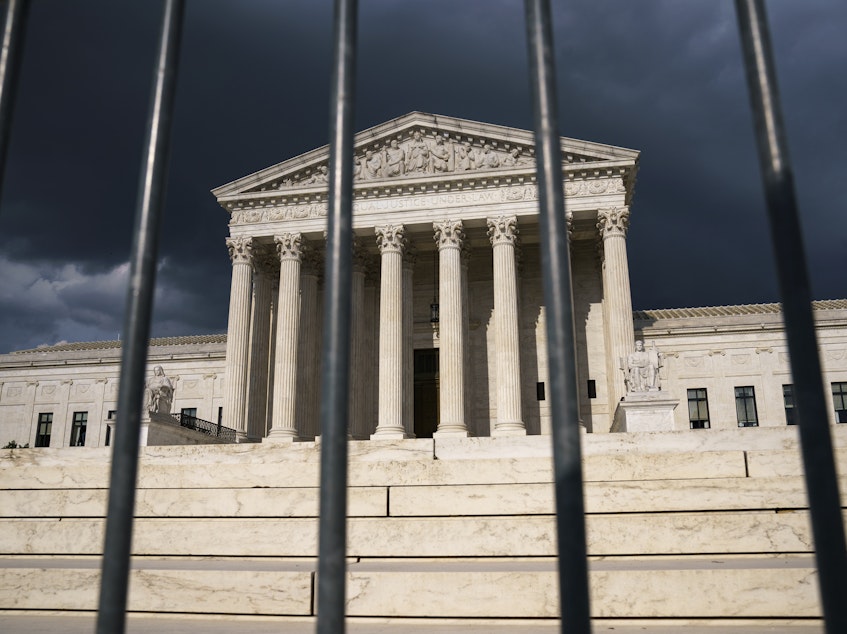The Supreme Court Throws Out A State Law Requiring Nonprofits To Name Rich Donors

The U.S. Supreme Court on Thursday sided with rich donors and their desire to remain anonymous against a state law aimed at policing the finances of charities and other nonprofits.
By a 6 to 3 vote along ideological lines, the court struck down California's law requiring nonprofits to file a list of their large donors with the state. The court said that the law subjected donors to potential harassment, chilling their speech in violation of the First Amendment
Updated July 1, 2021 at 10:33 AM ET
Under the California law, the tax-exempt groups were to attach to their filings with the state a copy of their IRS form reporting the names and addresses of all donors who gave more than $5,000 or 2% of the organization's total donations.
The case was brought by the Americans for Prosperity Foundation, a tax-exempt nonprofit founded by Charles Koch and his brother David Koch, who died in 2019, as well as the Thomas More Law Center, another conservative group.
Sponsored
In his opinion for the court's conservative majority, Chief Justice John Roberts said the court was applying exacting scrutiny, not strict scrutiny in analyzing the California measure.
"While exacting scrutiny does not require that disclosure regimes be the least restrictive means of achieving their ends, it does require that they be narrowly tailored to the government's asserted interest," he wrote.
Historically, it is state attorneys general who police charities, and in California, a state with 115,000 charities, that is a big job.
Jan Masaoka, the CEO of the California Association of Nonprofits, compares the California regime to the Federal Aviation Administration's system of regulation. Just as the FAA needs information from airplane manufacturers and airlines to ensure safety in air travel, California and other states need information from charities to ferret out fraud and self-dealing.
"All of us--nonprofits and donors--we want to have that confidence that the rules are being enforced, and we need the [state] attorney general to do that," Masaoka says.
Sponsored
"This fight is a skirmish in a larger war," observes Sean Delaney, who headed up enforcement for a similar law in New York state. Whether New York's regime or similar provisions in other states can remain in place remains an open question now that the Supreme Court has invalidated the California law.
In her dissent, Justice Sotomayor wrote: "Today's analysis marks reporting and disclosure requirements with a bull's-eye. Regulated entities who wish to avoid their obligations can do so by vaguely waving toward First Amendment 'privacy concerns.' ... It does not matter if not a single individual risks experiencing a single reprisal from disclosure, or if the vast majority of those affected would happily comply. That is all irrelevant to the Court's determination that California's Schedule B requirement is facially unconstitutional. Neither precedent nor common sense supports such a result."
Even more important could be the effect on federal and state laws that require public disclosure of the names of campaign contributors. In the political context, the Supreme Court has long ruled that such disclosure is constitutional because it serves the important public interest of accountability by disclosing who has skin in the game of influencing government policy. Indeed, public disclosure is perhaps the only remaining check on political contributions, and some political contributors would like to see it eliminated, too. In fact, so too would some members of the Supreme Court's conservative wing.
At the same time, tax regulators would like to see oversight rules toughened up to prevent tax-exempt charities from being used for partisan purposes.
Thursday's decision, however, could put the kibosh on that idea. In fact, the decision is likely to make the job of any agency watchdog a lot harder. [Copyright 2021 NPR]



